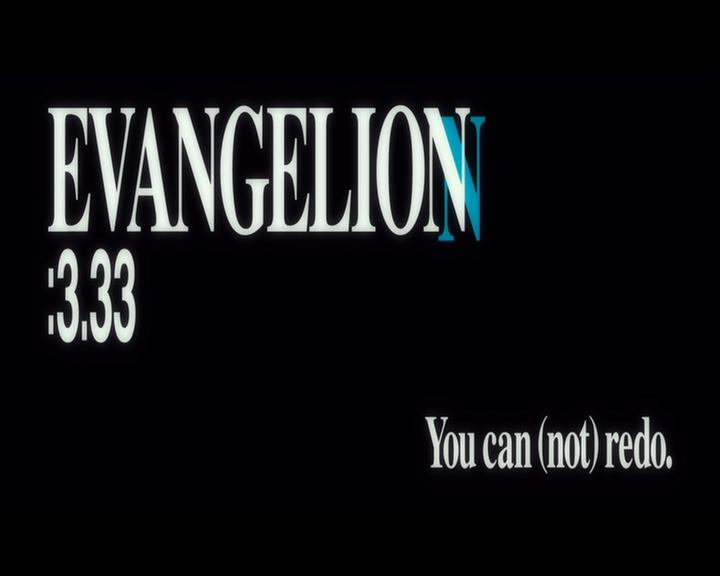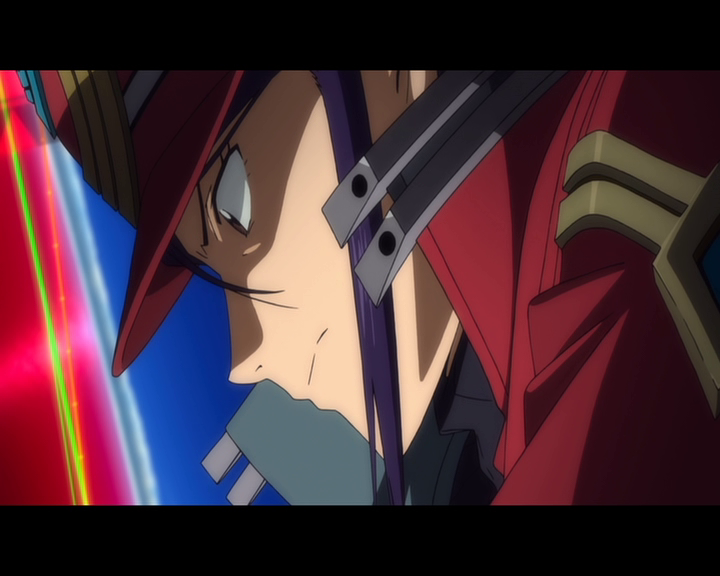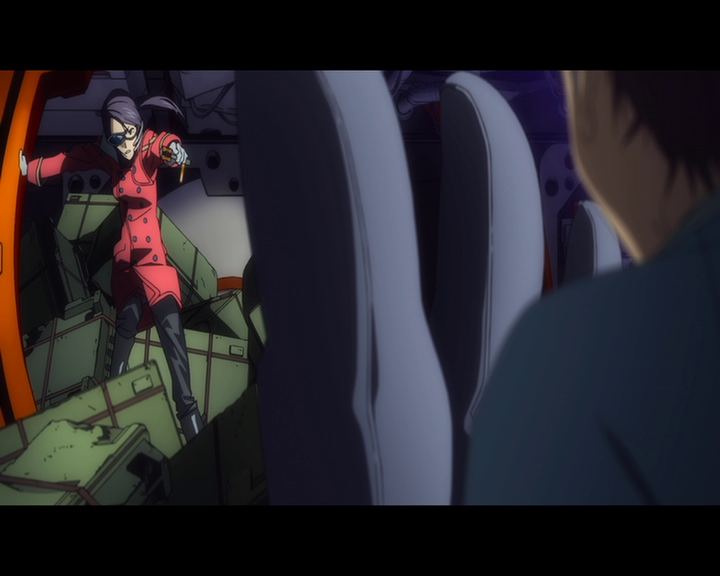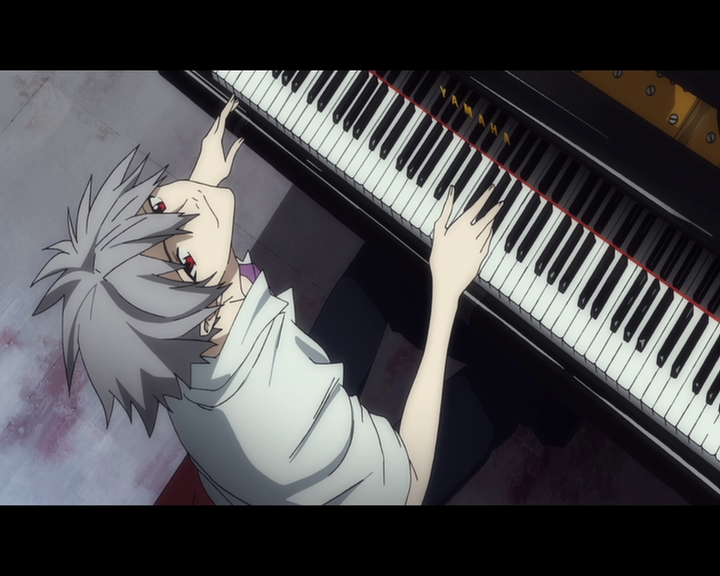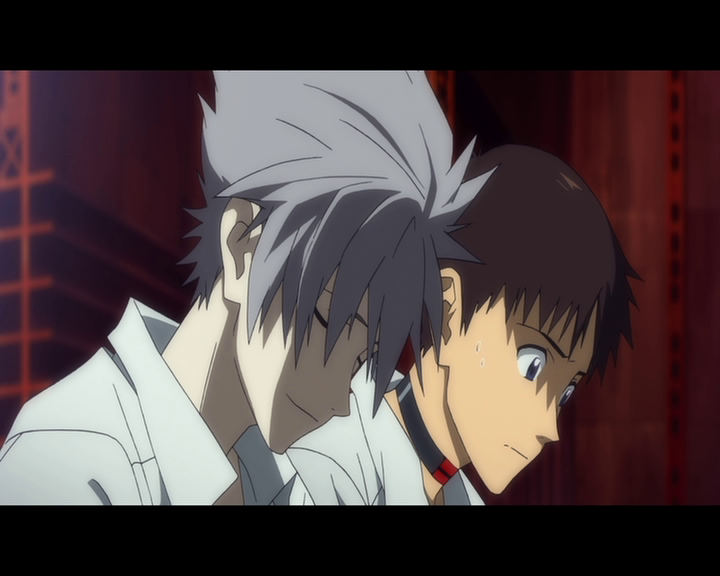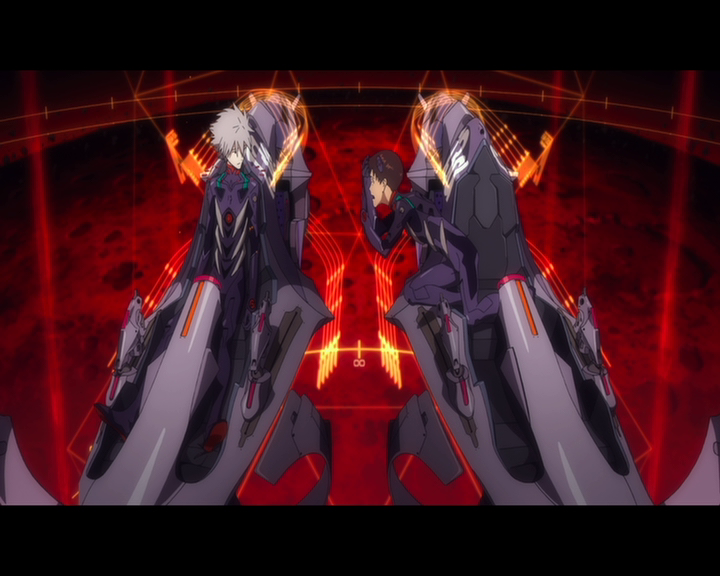-
#367 – Evangelion 3.0: You Can (Not) Redo
Evangelion 3.0: You Can (Not) Redo (2012)
Film review #367
Director: Hideaki Anno
SYNOPSIS: Shinji Ikari wakes up out of a coma to find he has been unconscious for fourteen years. In that time, the world has changed to a point that it is unrecognisable to him. The people he knew do not need him anymore, and his actions seem to have not mattered. As he sinks back into a state of depression, he finds a new friend; one which accepts him completely for who he is. However, fate has another twist in store for Shinji, as he is once again forced to play his part in the machinations of his Father, and the fate of humanity once again falls into his hands…
THOUGHTS/ANSLYSIS: Evangelion 3.0: You Can (Not) Redo is a 2012 film and the third in the Rebuild of Evangelion series, which remakes and retells the iconic Japanese animated TV series based around giant EVA robots piloted by a group of selected children. The film opens up where the previous one left off…well, except that it is fourteen years after the events of its climax. The film is very neatly separated into three acts, almost as If they were episodes of the TV series. The first act opens with Shinji Ikari waking up out of a coma to find out he has been asleep for fourteen years. In this time, it seems that everything has changed, with everyone he knew now working for WILLE, a new organisation dedicated to stopping NERV and the fourth impact, which will bring about the end of humanity. The ending of the second film saw Shinji finding a purpose and doing what he wanted in order to save Rei Ayanami, a fellow EVA pilot, and when Shinji wakes up at the beginning of this film, he finds that not only he didn’t save Rei after all, but he is no longer needed to pilot the EVA, leaving him without purpose. While the two previous films followed the story of the original series quite closely, this film opens up in a completely new world that has deviated from the source material, so viewers will empathise with Shinji’s position. The problem with this is that it essentially renders the ending of the previous film null and pointless. The ending was a powerful moment in that Shinji finally found his voice and purpose, but cancelling that out completely in the opening scenes in this film doesn’t sit quite right, and sets the film back quite a bit. While Shinji can do nothing, Misato, Asuka and the rest of the people Shinji knew go into battle in the EVAs and their new battleship in quite frankly is an amazing, hugely epic battle. The animation is an exemplary mix of 2D and 3D animation, there’s lots of variety in the action, and the soundtrack is grand. It does go on for quite a while, but it really is a spectacle that is extremely busy and full of shouting orders and military execution that again gives no space for Shinji to really do anything.
Shinji is kidnapped by his Father and told he must pilot a new EVA unit with a co-pilot, another young boy named Kaworu. In his hopeless state of mind, Shinji finds the one person who offers to help and support him unconditionally. After the high stakes, epic battle that consumed the first act, all that energy dissipates to focus on the psychological troubles of Shinji which will not be unfamiliar to fans of the series. The trouble is after the first act and its bombastic battle it struggles to find a footing and feels like a let-down in comparison. There’s a lot of re-visiting of similar themes as Shinji and Kaworu spend time with each other, as well as Shinji’s re-establishing contact with Rei. Again, all these things feel like they were addressed by the end of the second film, and they are being brought up again without adding anything new to the narrative. There’s some effort to make Shinji’s motivations more clear, but this act is very sparse on content.
The Third act sees Shinji and Kaworu enacting Gendo’s (Shinji’s Father) wish to begin the fourth impact and to initiate the next step of human evolution. The tempo picks up again and there’s a balance between the themes and energies of the first two acts. The story however starts to get really complicated, and difficult to follow: even though this is in typical Evangelion style, it still feels like it is throwing in a lot of exposition and elements that are given little space to be considered by the viewer. The trouble is that the first act demonstrated such a powerful action sequence that the climax just can’t compare with it. It tries, but there’s a complete mismatch. The climax is still filled with drama and action, but it’s a middle ground between the first two acts, and it can’t synthesise the two to move beyond them sadly.
Overall, Evangelion 3.0 offers a dramatic departure and something different for the series. Whereas the first two films stuck to the pace and structure of the original series, this film throws the viewer, along with the main character into a completely new world, leaving us in the same position as Shinji in order to empathise with him. I have to emphasise again that the way the film immediately renders the payoff of the previous film null and void feels like a bad move, and sends the film back to square one with the characters. The opening act does a good job of balancing the action with the impact of the situation on Shinji’s character, offering the viewer the chance of empathise with him, but the film does feel like it peaks at the end of the first act, and never quite exceeds what it achieves there. Nevertheless, the animation quality (again, mostly in the first act) is spectacular, the music is epic, and it offers a sense of scale and drama (thanks to its large budget) that the series did not do. The story struggles to find its footing throughout in this new direction, and dims the energy of the film series, but the areas it does excel in balance out the weaknesses which leave the film a mixed bag. More should probably be expected of such a highly regarded and renowned series, but it is not completely a write-off, and sets up a final film which hopefully can provide a fitting ending.
